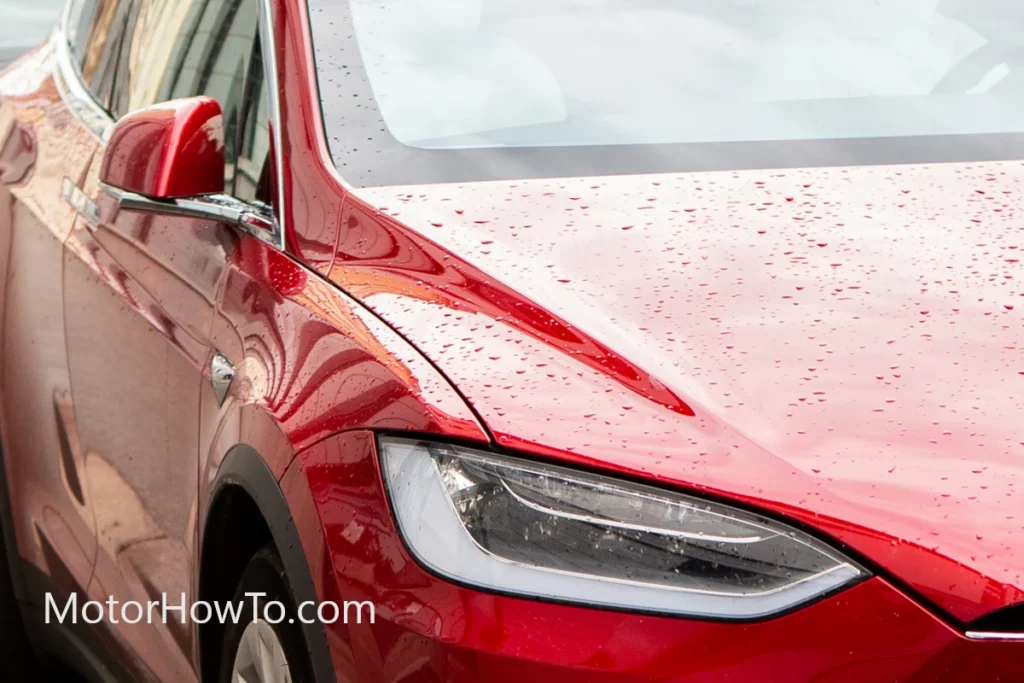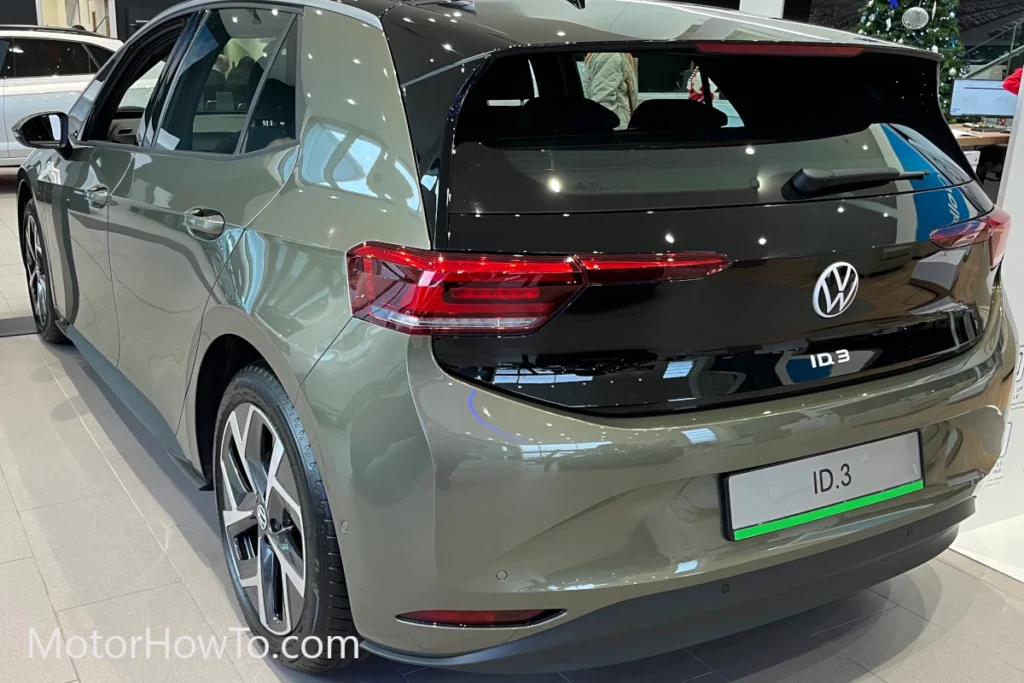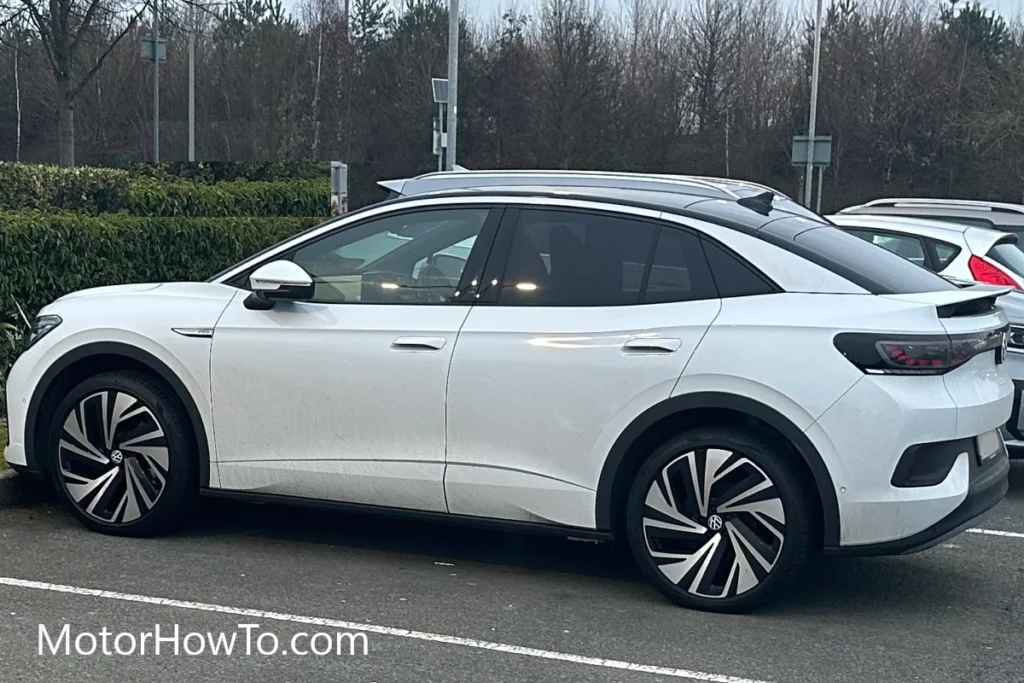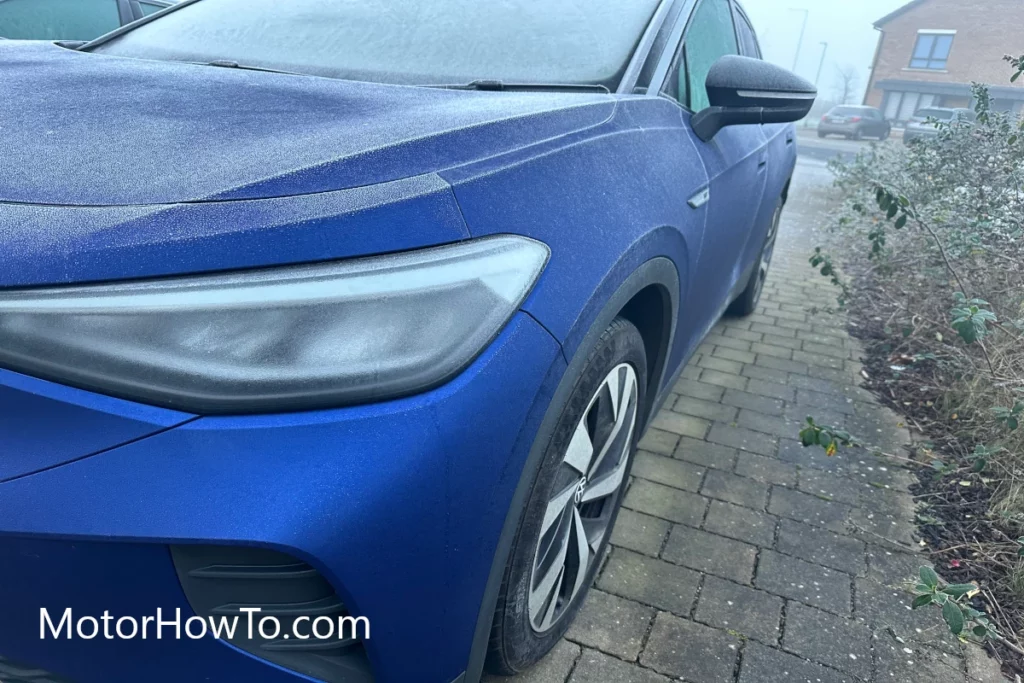Electric vehicles (EVs) are becoming an increasingly popular mode of transportation thanks to their eco-friendliness and cost-effectiveness.
However, like any other vehicle, EVs are also susceptible to environmental damage, such as water exposure.
Water getting into an EV battery can cause various issues, ranging from reduced performance to safety hazards, which can have significant consequences for the vehicle and its occupants.
Water in your EV battery can cause short circuits, corrosion, and harm the vehicle and occupants. It’s crucial to avoid water exposure.

While most EV owners know the importance of keeping their cars away from water sources, they may not fully understand the potential impact of water damage on their batteries.
This article will explore what happens when water gets in your EV battery, the causes of this problem, and how to prevent it from occurring.
Whether you are a seasoned EV driver or a new owner, understanding the effects of water damage on your battery can help you take the necessary precautions to protect your vehicle and ensure its optimal performance.
Related:
- Are Electric Cars Safe To Drive In The Rain? (Read This First)
- Can You Stall An Electric Car? (Explained For Beginners)
- How Long Can An Electric Car Sit Without Being Driven? (Explained)
Are EV Batteries Waterproof?
Electric vehicle (EV) batteries are the power source that drives the vehicle’s motor. While the battery is designed to withstand various environmental conditions, such as extreme temperatures, they are not entirely waterproof.
In general, EV batteries have a certain degree of protection against water exposure but are not completely sealed from moisture or water intrusion.
Manufacturers typically use design features and protective measures to minimize the risk of water damage to the battery.
For example, the battery pack is often located in the vehicle’s undercarriage, which helps shield it from splashes and minor floods.
Additionally, many EV batteries have a waterproof casing that provides a barrier against water intrusion. Despite the protective measures, water exposure can still pose a risk to EV batteries.
When water comes into contact with the battery’s electrical components, it can cause corrosion, short circuits, and potentially damage performance.
Therefore, it is crucial to avoid water exposure as much as possible and take steps to prevent water from contacting the battery pack.
Can You Drive An EV Through A Flood?
Driving an electric vehicle (EV) through a flood can be risky. Floodwater if enter the cars battery compartment or electrical circuits can damage to the vehicle’s electrical components and create safety hazards for the occupants.
In addition to the risk of damage to the vehicle’s electrical system, driving an EV through a flood can create safety hazards for the occupants.
For example, the vehicle could become stranded in the water, potentially putting the driver and passengers at risk of drowning or hypothermia.
As a result, it is generally recommended to avoid driving an EV through a flooded area.
Furthermore, floodwater can be fast-moving and unpredictable, making it difficult for the driver to navigate through the flooded area.
If you encounter a flooded area while driving an EV, it is recommended that you turn around and find an alternative route.
Suppose you must drive through a shallow flooded area. In that case, it is important to proceed cautiously and slowly to avoid splashing water onto the battery pack or electrical components.
Additionally, you should avoid driving through water deeper than the vehicle’s ground clearance, as this can increase the risk of damage to the battery and other electrical components.
Can An Electric Car Go Through A Carwash
Electric cars can go through a carwash just like traditional gasoline-powered vehicles. However, a few things to remember when taking an electric car through a car wash.
One of the main concerns is the potential for water to seep into the vehicle’s electrical components, including the battery and charging port.
To prevent water damage, it is recommended that you close all windows and sunroofs before entering the car wash.
Additionally, if your EV has a charging port, you should ensure it is closed and sealed to prevent water from getting inside. Another consideration is the type of car wash you choose.
While most automatic car washes are safe for electric cars, you should avoid car washes that use high-pressure water jets or abrasive brushes, as these can potentially damage the vehicle’s exterior and electrical components.
Instead, choose a carwash that uses soft cloth or foam brushes and low-pressure water jets to clean the car’s exterior.
Do EV Lithium Batteries React With Water?
EV lithium batteries are not supposed to come into contact with water, as this can cause serious damage to the battery and create safety hazards for the occupants.
When water comes into contact with lithium-ion batteries, it can cause a chemical reaction that produces flammable gases, leading to the battery catching fire or exploding.
This can create a serious safety hazard for anyone in the vicinity.
To minimize the risk of water damage to EV lithium batteries, manufacturers use a combination of design features and protective measures to keep water out of the battery pack.
Despite the protective measures, taking precautions to prevent water from contacting the battery pack is still important.
For example, the battery pack is often located in the vehicle’s undercarriage, which helps shield it from splashes and minor floods.
Additionally, many EV batteries have a waterproof casing that provides a barrier against water intrusion.
If the battery pack does come into contact with water, it is recommended that you take immediate action to dry it out and prevent any potential damage or safety hazards.
It is also important to follow proper handling procedures for lithium-ion batteries and dispose of them properly when they end their life.
Can A Water Damaged EV Battery Be Healthy?
Water damage to an EV battery can be very harmful, and in most cases, it will cause permanent damage to the battery’s cells.
When water comes into contact with the battery, it can cause a chemical reaction that produces flammable gases, corrodes the electrodes and electrical connections, and short-circuits the battery’s cells.
This can lead to a loss of capacity, reduced performance, and even complete battery failure. If an EV battery has suffered water damage, it must be brought to the service station where an qualified mechanic and inspect it as soon as possible.
Sometimes, the battery may be salvageable if the water exposure is limited and caught early enough.
However, in most cases, the battery will need to be replaced or repaired, which can be costly and time-consuming.
It is important to note that attempting to repair or salvage a water-damaged EV battery can be dangerous and should only be done by a qualified professional with the proper training and equipment.
The battery’s electrical components can pose a serious safety hazard, and attempting to repair or replace them without proper knowledge and expertise can be extremely dangerous.
Additionally, tampering with the battery can void its warranty and potentially cause further damage to the vehicle or its occupants.
How Do You Fix Water-Damaged Batteries on EVs?
Water damage to an EV battery can be a serious problem, and it is not recommended that you attempt to repair it yourself.
Instead, it is best to take the vehicle to a qualified technician with experience with EV battery repair, assess the damage, and recommend the best course of action.
The first step in repairing a water-damaged EV battery is to remove any visible signs of water and corrosion.
This may involve cleaning the battery’s exterior and removing any visible corrosion on the electrical connections and components.
The battery pack may need to be disassembled for a more thorough inspection and repair.
After cleaning the battery and assessing the damage, the technician will determine if any components need to be replaced or if the battery pack needs to be repaired or replaced entirely.
Sometimes, the battery cells may be salvageable, and you must replace only a few components.
In other cases, the battery may need to be replaced entirely to ensure the safety and reliability of the vehicle.
Finally, the technician will test the battery pack to ensure it is functioning properly and free from any water damage.
Conclusion
Electric vehicles (EVs) are a popular mode of transportation, but they are not entirely waterproof, and exposure to water can cause a range of issues.
EV batteries have some degree of protection against water intrusion but can still be damaged.
When water comes into contact with an EV battery, it can cause corrosion, short circuits, and harm the vehicle and its occupants.
Driving through a flood is not recommended as it can be hazardous for both the battery and the occupants, and a water-damaged battery will likely be permanently damaged.
It is, therefore, essential to avoid water exposure as much as possible, close all windows and sunroofs when going through a car wash, and ensure the EV battery is dry if it comes into contact with water.
EV batteries are not entirely safe from water damage. EV owners must take precautions to prevent water intrusion, including avoiding deep water, using proper handling procedures, and disposing of them correctly.
EV owners should be aware of the potential impact of water damage on their batteries and how to prevent it.
Sources
What happens if you drive an EV through water?
Is a battery electric vehicle safe in a flood?
Dear Drive… is it safe to drive an electric car through water?
Can I take my electric car through a car wash.
News – How Lithium Battery Reacts with Water
Myth Buster: Your EV Won’t Function in Water
Yes, You Can ‘Fix’ a Flooded Electric Car by Covering It in Rice



